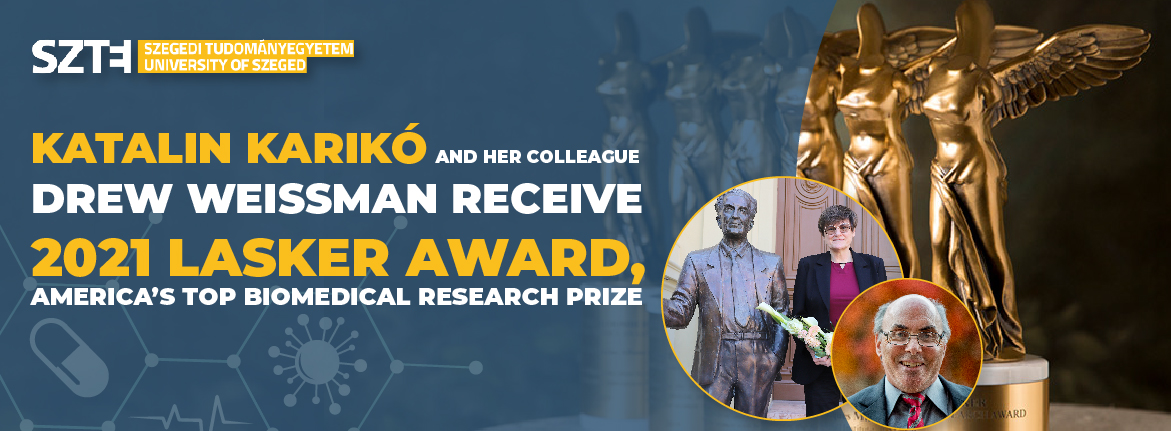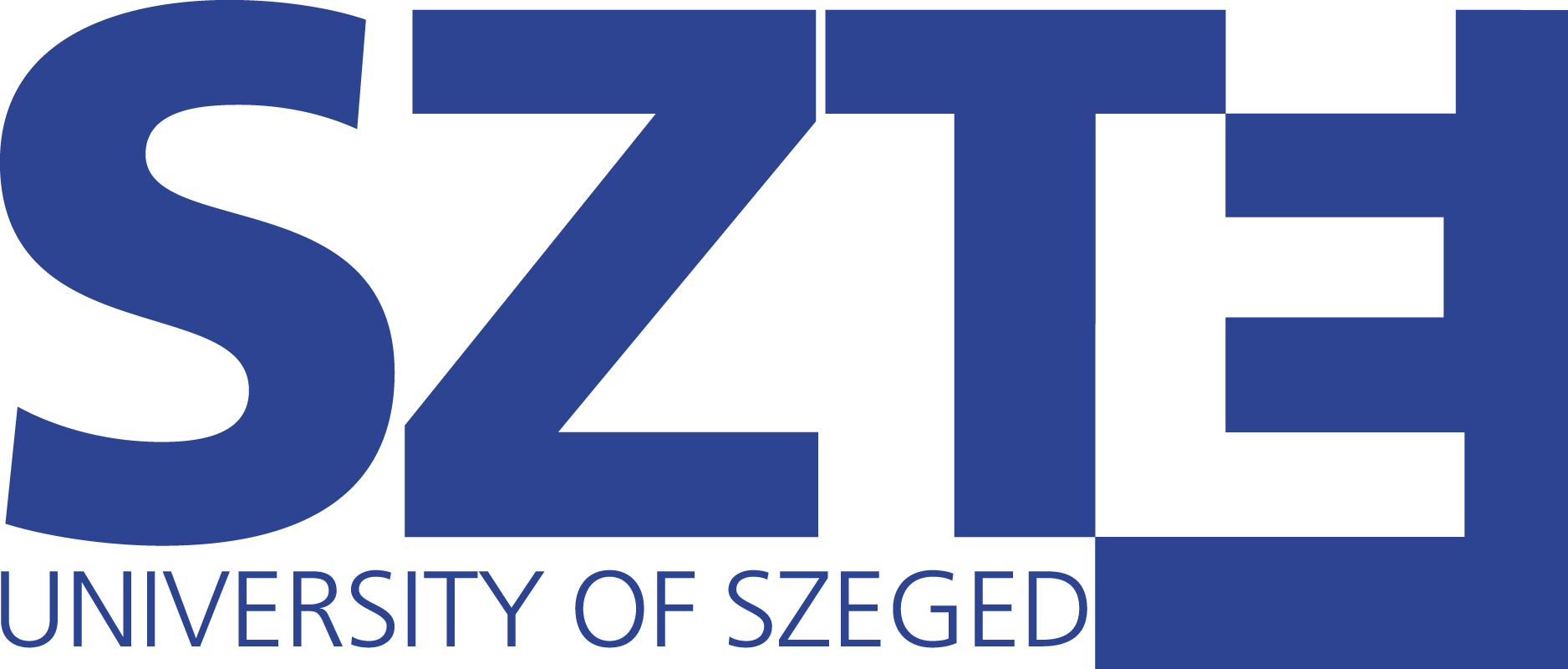
Katalin Karikó and her colleague Drew Weissman receive the 2021 Lasker Award for their effort in laying the foundation for swift vaccine development against Covid-19. The Award often called "the American Nobel Prize" once again spotlights the exceptional achievements of Katalin Karikó - a graduate of the University of Szeged -, the importance of basic research and the positive impact of scientists' collaborations on our lives.
The mRNA-based vaccines provide protection for hundreds of millions of people worldwide during the Covid-19 pandemic. Messenger RNA inventors Katalin Karikó, PhD - an adjunct professor of Neurosurgery at Penn and a senior vice president at BioNTech - and her fellow researcher Drew Weissman, MD, PhD - the Roberts Family Professor of Vaccine Research in Penn’s Perelman School of Medicine - are honoured with what is widely regarded as America’s top biomedical research prize for the discovery of a therapeutic technology based on the modification of mRNA that makes it remarkably safe and effective. The Lasker foundation announced its decision on 24 September 2021.
Katalin Karikó, honorary doctor and Alumna of the University of Szeged, compares the research work to the thrill of watching an intricate detective story unfold. “So many enigmatic things about RNA I find very, very exciting,” Karikó said. “And I am so glad that it eventually helped humanity”. - Said Katalin Karikó. According to the Penn press release, she added that while working with Weissman on experiments, “Sometimes, we asked a question and made an experiment. And of course, instead of the answer, we got 100 more questions. It was very enjoyable. I would like to emphasize that to be a scientist is a joy.”".
The researcher, who holds a degree in biology from the Faculty of Science and Informatics of the University of Szeged and is a doctor of biochemistry, first heard about the potential of mRNA for medical applications at her alma mater. She persisted for her research in the US, even when she could not get funding. A chance encounter led her working with Drew Weissman in Penn's labs. Their groundbreaking study published in 2005 found that their concept—which brought fresh hope to a field beset by scepticism and false starts—could be a reality: that mRNA could be altered and then delivered effectively into the body to initiate a protective immune response.
Their method to turn cells into factories that can temporarily produce proteins that serve as therapeutic compounds or stimulate the body’s immune system to attack a specific pathogen also minimizes harmful inflammatory responses. This platform and the result of years of research set the stage for the rapid development and deployment of mRNA vaccines to combat COVID-19 when the virus exploded across the world in early 2020. The Pfizer-BioNTech vaccine is being deployed in 126 countries, and 71 countries are using the Moderna vaccine.
For 75 years, the Lasker Awards have recognized the contributions of leaders who make major advances in the understanding, diagnosis, treatment, cure, or prevention of human disease. The Lasker-DeBakey Clinical Medical Research Award that Katalin Karikó and Drew Weissman are about to receive rewards major advances that improve the lives of many thousands of people. The two researchers (often referred as mRNA innovators) receive a combined honorarium of $250,000 with the 2021 Lasker-DeBakey Clinical Medical Research Award.
The Lasker Prize has already been awarded Honorary Doctors of the University of Szeged, such as Nobel Prize winner Albert Szent-Györgyi (1954), Andrew Schally (1975) and in 2021 Katalin Karikó. Since its inception, 95 Lasker laureates have also been awarded the Nobel Prize.

